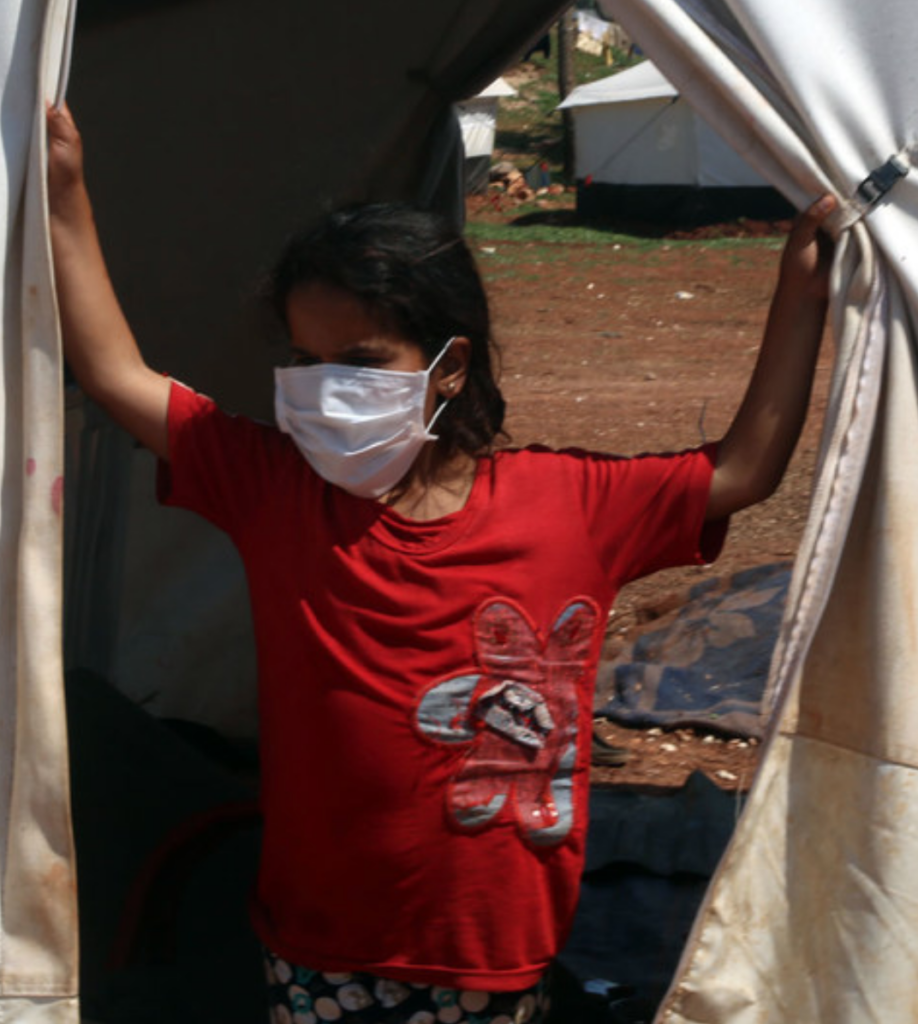© UNICEF/Omar Albam In a camp in northern Syria, a young girl wears a mask to protect her from COVID-19.
The top UN disarmament official on Thursday briefed the Security Council on progress made by Syria towards eliminating its chemicals weapons programme, complicated by the coronavirus pandemic.
“It cannot be repeated often enough: There is no justification for the use of chemical weapons by anyone, anywhere and under any circumstances”, Izumi Nakamitsu, High Representative for Disarmament Affairs said. “There are no excuses for an inexcusable act”.
Although the COVID-19 pandemic continues to impact the ability of the Organization for the Prohibition of Chemical Weapons (OPCW) to deploy to the country, Ms. Nakamitsu said that the Technical Secretariat that serves the multilateral body has “continued with its mandated activities”.

Against the backdrop that the Declaration Assessment Team (DAT) has continued its efforts to clarify any outstanding issues, she noted that it had held consultations with the Syrian Government between 22 September and 3 October – the outcome of which will be reported to the Council in due course.
Declaration incomplete
“Due to the identified gaps, inconsistencies and discrepancies that remain unresolved, the OPCW’s technical secretariat has assessed that the declaration submitted by Syrian Arab Republic cannot be considered accurate and complete in accordance with the Chemical Weapons Convention (CWC)”, the UN disarmament chief attested.
She reminded the Council that “efforts to resolve these outstanding issues have been ongoing since 2014”, and reiterated that “the confidence of the international community in the complete elimination of Syria’s chemical weapons programme depends upon these issues being finalized”.
Fact-finding Mission
The UN disarmament chief reported that OPCW’s Technical Secretariat still plans to conduct two rounds of inspections of the Barzah and Jamrayah facilities of the Syrian Scientific Studies and Research Centre, depending on the course of the pandemic.
Meanwhile, that after analyzing data of a 2016 August incident in Saraqib, Idlib Governorate, as well as another in Aleppo in November of 2019, she informed that the Fact-Finding Missions (FFM) were not able to establish whether chemical weapons had been used.
She maintained that the Investigation and Identification Team (IIT) “continues its investigations into [other] incidents in which the FFM has determined that chemical weapons were used, or likely used, in the Syrian Arab Republic and will issue further reports in due course”.
The High Representative closed by underscoring that “those who have used chemical weapons must be identified and held to account”.
View original.

